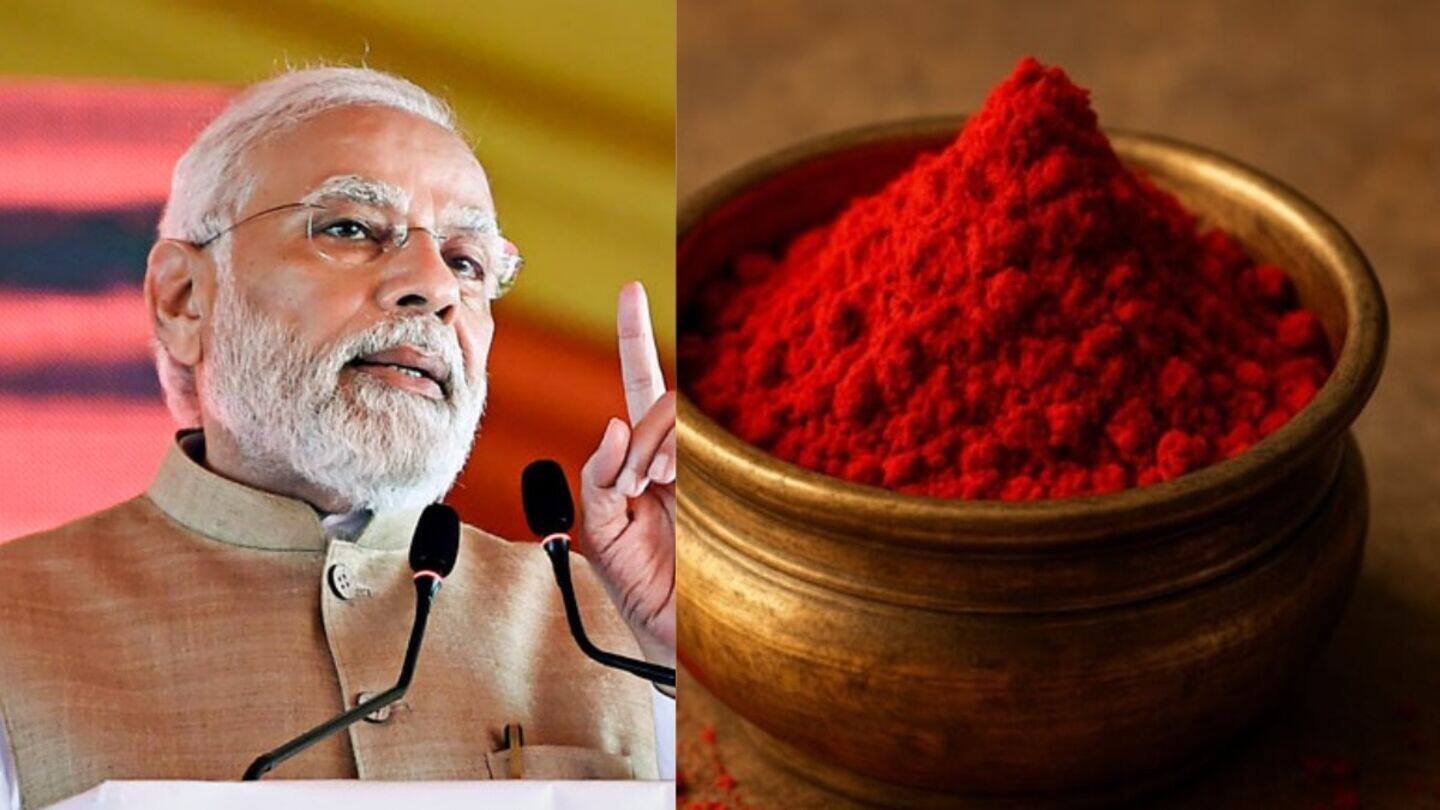
Why PM Modi named India's counter-terror operation 'Sindoor'
What's the story
India's latest counter-terrorism operation, 'Operation Sindoor,' has been in the news for an interesting reason—its name. Prime Minister Narendra Modi personally chose the name for the country's retaliatory strike against terror bastions in Pakistan after the horrific Pahalgam terror attack, official sources told news agency PTI. Sindoor (vermilion) has a deep cultural and emotional significance. It is used by Hindu women as a symbol of marriage, love, and commitment.
Symbolism
Significance of the name
The name sindoor for the operation is steeped in significance, particularly in light of the Pahalgam terror attack's nature. Twenty-six innocent lives were ruthlessly snuffed out, and families were shattered forever. Victims were specifically targeted for their religion and shot to death before their spouses and children. Therefore, dubbing India's retributive action against such unspeakable atrocities as sindoor bears powerful symbolic significance.
Imagery
Visual representation of Operation Sindoor
The Indian Army explains the meaning of 'Operation Sindoor' further. In a post shared on X, Operation Sindoor is written in capitals, with an 'O' as a bowl of vermilion. Some of the vermilion has spilled, representing the brutality that snatched the life partners of 26 individuals. The caption says, "Justice is served. Jai Hind."
Twitter Post
Check out the pic here
#PahalgamTerrorAttack
— ADG PI - INDIAN ARMY (@adgpi) May 6, 2025
Justice is Served.
Jai Hind! pic.twitter.com/Aruatj6OfA
Promise
PM Modi's vow after Pahalgam attack
After the Pahalgam terror attack, PM Modi had vowed unimaginable punishment for those behind this heinous act. "From Kargil to Kanyakumari, there is grief and rage. This attack was not just on innocent tourists; the country's enemies have shown the audacity to attack India's soul," he said. He added, "The time has come to raze whatever is left of the terror haven."
Hideouts
India struck nine terror hideouts
In the precision operation, the Indian Air Force struck nine terror hideouts of banned groups Jaish-e-Mohammed, Lashkar-e-Taiba, and Hizbul Mujahideen—four deep inside Pakistan and five in Pakistan-Occupied-Kashmir (PoK). The targets were Jaish's Markaz Subhan Allah in Bahawalpur, the Sarjal camp in Tehra Kalan, Markaz Abbas in Kotli, and the Syedna Bilal camp in Muzaffarabad. Lashkar's strongholds — Markaz Taiba in Murdike, Markaz Ahle Hadith in Barnala, and Shwawai Nalla camp in Muzaffarabad — were also struck
Press brief
More attacks were being planned agaisnt India: Misri
In a press briefing after the operation, India's Foreign Secretary Vikram Misri said intelligence reports had suggested that more terror attacks like the Pahalgam incident were being planned against India. "Thus, compulsion, both to deter and prevent..India exercised its right to respond to deter such cross-border terrorism...Our actions were measured and non-escalatory, proportionate and responsible. They focused on dismantling terrorists' infrastructure," he said.